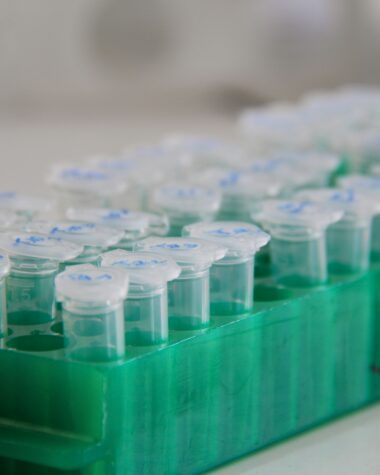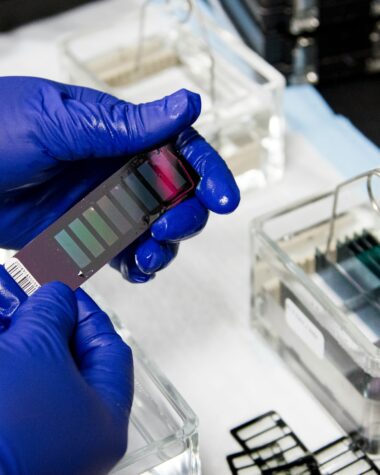Teladoc Health Inc. (NYSE:TDOC) is a global leader in virtual healthcare and telemedicine, widely recognized as the company that pioneered the modern era of digital medical consultation. Founded in 2002 and headquartered in Purchase, New York, Teladoc began with a simple yet revolutionary vision—to provide accessible, on-demand healthcare to patients anytime, anywhere, through secure digital communication. Over the years, this vision evolved into a comprehensive healthcare ecosystem that integrates advanced technology, medical expertise, and artificial intelligence to deliver personalized care across multiple specialties. Today, Teladoc serves millions of members in over 175 countries, transforming how people access and experience healthcare.
From its early beginnings as a telephonic consultation service, Teladoc rapidly expanded its offerings to include virtual primary care, chronic condition management, behavioral health, dermatology, expert medical opinions, and preventive wellness programs. Its platform connects patients to licensed doctors and specialists through video, app-based, and phone consultations—reducing the need for in-person visits while improving access to quality medical care. The company’s approach has been embraced by major employers, health plans, hospitals, and government agencies seeking scalable, cost-efficient solutions that improve patient outcomes. By building a hybrid model that combines digital innovation with clinical excellence, Teladoc has become a trusted partner to health systems navigating the global transition toward virtual-first care.
A defining moment in Teladoc’s history came in 2020 with its acquisition of Livongo Health, a leader in chronic condition management using AI-driven data analytics. The $18.5 billion deal positioned Teladoc at the forefront of digital chronic care and integrated health management, allowing it to serve patients with diabetes, hypertension, obesity, and other long-term conditions through continuous remote monitoring and personalized interventions. This strategic acquisition transformed Teladoc from a telemedicine company into a full-spectrum digital health organization, capable of managing preventive care, acute treatment, and long-term health goals on a single, unified platform.
Teladoc’s growth trajectory reflects its ability to evolve alongside global healthcare challenges. During the COVID-19 pandemic, the company played a critical role in keeping healthcare systems functioning through virtual consultations, helping patients receive safe, remote medical support when hospitals were overwhelmed. In the post-pandemic era, Teladoc continues to innovate by expanding its services into mental health through its BetterHelp platform—the world’s largest online therapy provider—and by integrating data analytics, artificial intelligence, and remote monitoring into its care model. These advancements are designed to enhance patient engagement, improve clinical accuracy, and reduce costs for healthcare providers.
In 2025, Teladoc took another major step forward by introducing artificial intelligence capabilities into its hospital monitoring systems. Its latest innovation, integrated into the company’s Clarity platform, uses AI to analyze video and audio cues in hospital environments to detect and prevent workplace violence—a growing issue in healthcare facilities worldwide. By leveraging AI to identify potential threats before they escalate, Teladoc is extending its impact beyond patient care to address workforce safety and operational efficiency. This move underscores the company’s commitment to solving real-world healthcare challenges with technology-driven solutions, positioning it not just as a telehealth provider but as a comprehensive healthcare technology company.
With more than $2.4 billion in annual revenue, over 90 million global members, and partnerships with leading healthcare systems and insurers, Teladoc Health remains the most established and diversified player in the virtual care industry. Its investments in artificial intelligence, machine learning, and integrated care delivery set the stage for sustainable growth as global healthcare systems increasingly embrace hybrid care models. Teladoc’s mission—to empower all people everywhere to live their healthiest lives through whole-person virtual care—continues to guide its strategy as it redefines the intersection of technology, compassion, and medicine in the digital age.
Teladoc’s Transformation From Virtual Care Pioneer to AI-First Healthcare Innovator
Teladoc Health, Inc. (NYSE: TDOC) has long been recognized as the pioneer of telemedicine and virtual healthcare services, but in 2025, it is undergoing one of the most important transformations in its history. Founded in 2002 and headquartered in Purchase, New York, Teladoc built its name by offering 24/7 access to doctors via phone, video, and app-based consultations—long before telehealth became a global necessity during the COVID-19 pandemic. The company’s reach now spans over 90 million members worldwide, with clients ranging from Fortune 500 employers to health plans and hospitals.
Over the years, Teladoc has strategically evolved from being a “virtual doctor visit” platform into a comprehensive integrated virtual care ecosystem that includes chronic care management, mental health (BetterHelp), expert medical opinions, and preventive wellness programs. Its mission has expanded beyond convenience—it aims to create a continuous, data-driven connection between patients and clinicians, bridging gaps in care, accessibility, and outcomes.
Despite short-term headwinds and declining investor enthusiasm in recent years, Teladoc’s latest initiatives show that it is once again positioning itself at the leading edge of healthcare innovation—this time by combining artificial intelligence (AI), behavioral analytics, and connected monitoring systems to address one of the most alarming crises facing hospitals today: workplace violence.

CHECK THIS OUT: Corcept (CORT) Skyrockets 1,534% in 10 Years and Immuneering (IMRX) Reports 86% 9-Month Survival in Pancreatic Cancer.
Launching AI-Powered Clarity to Combat Hospital Violence
In October 2025, Teladoc Health announced the integration of groundbreaking AI features into its Clarity monitoring solution, a platform designed to enhance hospital safety through intelligent detection and intervention. The new AI capabilities are built to monitor video and audio cues in real time, analyzing facial expressions, gestures, tone, and language patterns to identify threatening or escalating behavior in healthcare facilities.
If the system detects potential aggression—such as a person shouting at staff, making threatening movements, or attempting to damage medical equipment—it automatically alerts the appropriate care teams and security personnel. This early warning system empowers hospitals to act before violence occurs, turning what was once a reactive security model into a proactive, data-driven defense mechanism.
According to Teladoc Health president Andy Puterbaugh, this AI-powered solution is “purpose-built to transform insights into action,” helping to ensure the safety of both healthcare workers and patients. Unlike panic buttons or security cameras that rely solely on human vigilance, the new Clarity AI solution continuously monitors for behavioral risks in real time. It effectively uses machine learning to protect one of the most vulnerable workforces in America—the healthcare frontliners who face rising incidents of physical and verbal violence in hospital settings.
The Growing Crisis of Violence in Healthcare
The need for such innovation is staggering. The Occupational Safety and Health Administration (OSHA) classifies workplace violence as a recognized hazard in healthcare, encompassing threats, harassment, intimidation, and physical assaults. Data from the Bureau of Labor Statistics (BLS) revealed that the healthcare and social assistance sector recorded the highest incidence rates of workplace violence of any U.S. industry in both 2021 and 2022.
Over a two-year period, there were 41,960 nonfatal workplace violence cases that led to absences or job transfers, and 59 fatal injuries in 2023 among healthcare practitioners and technical staff. Meanwhile, the CDC’s 2023 Vital Signs report showed that healthcare workers reporting harassment at work more than doubled from 6% in 2018 to 13% in 2022. Beyond the human toll, the American Hospital Association (AHA) estimated that violence in hospitals cost U.S. facilities approximately $18.27 billion in 2023, including expenses tied to staff turnover, legal settlements, medical care delays, and lost productivity.
Teladoc’s move into this space represents more than just an expansion of its product portfolio—it reflects a mission-driven approach to address systemic challenges in healthcare operations, workplace safety, and staff well-being. By tackling the problem of hospital violence with AI-based insights, Teladoc is extending its leadership in digital health into hospital infrastructure and workforce protection, two sectors poised for explosive demand in the coming years.
Strengthening Its Position in the AI-Driven Healthcare Market
The new AI features integrated into Clarity signal a broader pivot for Teladoc toward AI-powered care delivery and health system integration. The company is increasingly positioning itself not just as a telehealth provider, but as a comprehensive AI-enabled healthcare technology platform. These intelligent systems can be applied across its service ecosystem—enhancing patient engagement, predicting health risks, automating triage, and optimizing hospital workflows.
This strategy fits perfectly with global trends. The healthcare AI market is projected to exceed $187 billion by 2030, growing at a compound annual rate of over 35%. Hospitals and healthcare networks worldwide are investing in AI to enhance patient safety, reduce costs, and mitigate staff shortages. Teladoc’s Clarity solution arrives at a critical moment when the healthcare sector is desperate for innovation that protects frontline workers while improving operational resilience.
By embedding AI directly into hospital monitoring and telehealth operations, Teladoc can diversify its revenue streams beyond virtual visits and BetterHelp subscriptions. The Clarity solution—expected to roll out widely in Q1 2026 under the company’s partner development program—could open doors to large enterprise contracts with hospital systems, insurers, and government agencies focused on workplace safety compliance and employee retention.
A Turnaround Story Rooted in Real Innovation
After years of investor skepticism following its massive Livongo acquisition and post-pandemic slowdown, Teladoc is beginning to show signs of strategic renewal. Its leadership is focusing on practical, revenue-generating innovation rather than expensive expansion. The emphasis on AI-enhanced tools like Clarity and predictive health analytics represents a shift toward sustainable growth built on enterprise partnerships and differentiated technology.
With over $1.29 billion in cash, strong free cash flow, and a renewed focus on integration and operational efficiency, Teladoc has the resources to execute this pivot successfully. The AI expansion also helps reposition the company as an underappreciated player in digital safety and smart hospital solutions—a niche expected to grow exponentially as hospitals face regulatory pressures to address workplace violence and improve patient safety.
The Bigger Picture: Teladoc’s Path to Long-Term Growth
Teladoc’s evolution into an AI-first healthcare company reflects a deeper understanding of where the industry is heading. Beyond convenience-based telehealth, the future of medicine is hybrid, intelligent, and interconnected. Hospitals and health systems are demanding integrated digital ecosystems that can predict, prevent, and personalize care—and Teladoc’s diversified suite of offerings positions it to deliver exactly that.
If Teladoc executes effectively, the Clarity AI initiative could become a flagship product, driving recurring enterprise revenue while solidifying Teladoc’s reputation as a trusted partner in digital transformation for hospitals. The company’s ongoing commitment to combining technology, clinical insight, and safety innovation underscores a clear message: Teladoc Health is not just surviving the post-pandemic telehealth correction—it’s building the foundation for the next era of intelligent healthcare.
READ ALSO: Tiziana (TLSA) Surges 143% in 2025 and Immuneering (IMRX) Reports 86% 9-Month Survival in Pancreatic Cancer.








